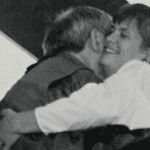We can’t keep everything, but we can collaborate.
Think for a moment about all the really cool, old stuff there is out in the world. Or even just on Mount Desert Island and surrounding communities. And think about all the stuff (so very much stuff!) we are creating today that will one day be old and historic. Now think about what it might look like if your local historical society or museum were to try to even collect one example of everything.
If you visit almost any museum or historical society or archive, you will see exhibit spaces and storage spaces that are full. And if you consider the operating costs for such organizations, you will see that there is a very real cost to preserve, protect, and provide access to all of these things. On top of that, running the climate control systems needed for long-term preservation generally has a bigger environmental impact than that needed for residential or office space.
So with spaces already full, and budgets tight, it is highly unlikely that any one organization will be able to responsibly keep collecting one of everything—or even keep all the collections they already have. So, I come to one of the benefits of collaboration.
Through The History Trust, and our work to document, in more detail, the collections across member organizations, we can share the burden (and the joy) of collecting the area’s history.
Say we find out that each organization has several spinning wheels. We could compare and see which spinning wheels have the best local stories. And those that don’t have great local stories could be deaccessioned (the formal way museums remove items from their collections). So maybe we end up with five really great, locally connected spinning wheels across all of our member organizations.
Often there is concern about not saving everything: We might do an exhibit down the road when we could really use that thing we didn’t keep. A great aspect of collaboration is that we have the opportunity to do the exhibit either as a collaboration with the organization that has a really great example of that thing, or to borrow that thing from an organization that did keep an example.
Thus, we have freed up space and resources for better care of what we still have. Or, we free up space and resources to add something new. Something that, through the History Trust, we discovered is missing—an important, locally significant object that no local organizations has. We can now work together to find a great piece to fill that gap and, because the Trust does not itself hold collections, decide which member is the best match as its home, thereby making the most of our limited resources.
I should add that the above reflects my individual thoughts on collaboration around collecting, and is not an official position of The History Trust. If you want to learn more about what the future of museum collections might look like, I encourage you to check out Active Collections (http://www.activecollections.org/) or the book Active Collections edited by Elizabeth Wood, Rainey Tisdale, and Trevor Jones.
~ Photo: “The Wednesday Spinners Loading a Boat in Islesford,” Mount Desert Island Historical Society …view item


